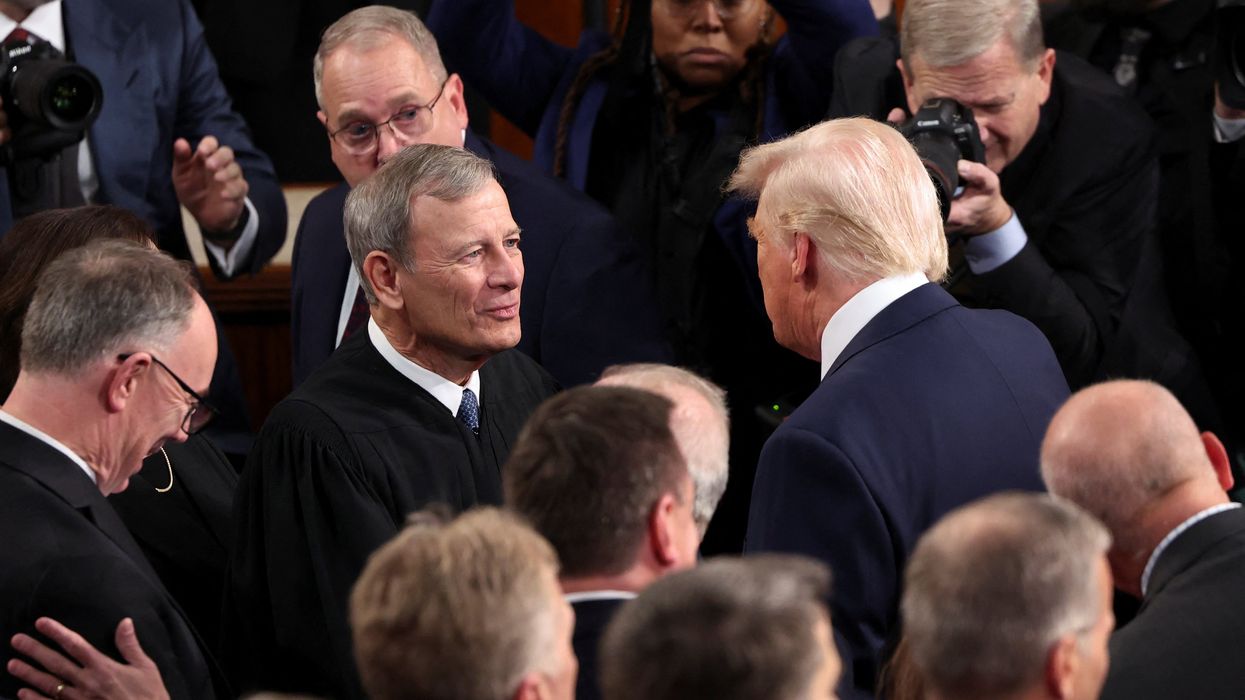How the 'disastrous' Supreme Court 'diminished its own power' — and is now paying the price


When the U.S. Supreme Court handed down its controversial 6-3 decision in Trump v. the United States, Justice Sonia Sotomayor was downright scathing in her dissent.
The High Court's right-wing supermajority ruled that presidents enjoy absolute immunity from criminal prosecution for "official" acts committed in office but not for unofficial acts. And Sotomayor, in her dissent, warned that that under the ruling's guidelines, a president could order the assassination of a political rival and claim it was an official act and therefore, exempt from criminal prosecution.
In Sotomayor's view, the Trump v. the United States decision gave the federal government's executive branch way too much power. And in an article published by Slate on May 27, journalist/attorney Mark Joseph Stern argues that the High Court — four months into Donald Trump's second presidency — is imperiled by its own ruling.
READ MORE: 'Illegal and unconstitutional': Harvard hits back at Trump
"As the first Supreme Court term of Donald Trump’s second presidency draws to a close," Stern explains, "one particularly alarming throughline has emerged: The Court's decision in Trump v. U.S. nearly one year ago has emboldened the president to challenge the limits of judicial authority to their breaking point. The Supreme Court's 6–3 decision granting Trump sweeping immunity from criminal prosecution looked disastrous from the moment it was released in July 2024. Its impact has only grown more dire since then, as a string of emergency orders and late-night rulings from the Court in response to Trump's daily assaults on the Constitution makes plain."
Stern continues, "At the time, the most immediate consequence of Trump v. U.S. appeared to be its derailment of special counsel Jack Smith's effort to try Trump for his attempted subversion of the 2020 election. And that outcome undoubtedly bolstered Trump's successful campaign to retake the White House by taking a January 6 trial off the table before November 2024."
The High Court's six GOP-appointed justices, Stern argues, shot themselves in the foot in Trump v. the United States — and now, they're paying the price.
"The majority may have also failed to foresee the ways that Trump would use the decision to diminish the Court's own power," Stern laments. "Having freed the president to burst past existing constitutional restraints, the justices must now try to preserve their own authority from executive encroachment. In case after case since Trump's restoration, the Court has tried to have it both ways, reeling in some of his most extreme actions — while still giving the GOP most of what it wants — without entirely ceding its own power to tell the president 'no.' And so, a malignant dynamic is now unfolding between an imperial court and the president whom it crowned 'a king above law.'"
READ MORE: John Roberts is to blame for Trump challenge of federal courts: analysis
Stern adds, "The conservative supermajority continues to pursue its own agenda, which includes an aggressive expansion of executive authority. But it is doing so at the worst possible time, when the presidency has been captured by an aspiring authoritarian who defies all constitutional constraints. So, the Supreme Court is caught between its own desire to shift the law rightward and its fitful inclination to shoot down Trump's most extreme moves — if only to preserve its own power."
READ MORE: 'An offense in Canada': Trump may be legally barred from traveling to the G7
Mark Joseph Stern's full article for Slate is available at this link.